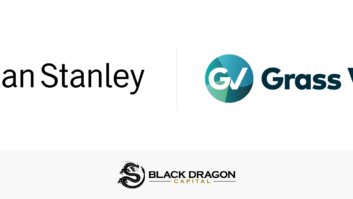
When did you take InFocus back? We launched the third week of February, and now we’re the exclusive UK distributor. We’re very excited – it’s great to have such a strong brand back in the portfolio. It’s going really well – we’ve made a good start, but we need to go as fast as possible. Already InFocus are becoming quite demanding – quite rightly – asking and expecting more. I’d expect nothing less from a brand that wants to better itself.
I want Maverick to be the invisible partner here. If we do our job really well, and add the right services and the right value to InFocus and to its existing and new resellers – then it’s not about us. We don’t want to be on the front page.
What does it mean to be a specialist distributor? The big difference between the broader Computer 2000 IT operation and Maverick as an AV specialist is that we deliberately choose as a strategy to have a narrow set of vendors. That drives a number of imperatives. One is that you need to become deeply expert, and immerse yourself, in all of your vendors. That is not only in product knowledge, and being an advocate for the brand – it’s also about entangling yourself with that vendor’s strategy, embodying that strategy and championing it in the marketplace.
The flipside of having a narrow portfolio is that I need to wring every pound of revenue from our vendors – because if one fails, my overall plan fails, I have nowhere else to go. Every single vendor has to work – so you get deeply specialised, deeply entangled, and you behave accordingly.
We expect a good margin for giving a good enough service. And I say ‘good enough’ rather than ‘exceptional’ because I want to put the minimum amount of margin on InFocus’s costs, but still do a good enough job for a broad marketplace. In the current climate I think that’s imperative, because we’ve rapidly moved form a fat value chain to one that needs to be lean and mean.
What all vendors want is to create wealth, and for distributors to create demand for them. InFocus are looking for incremental growth in a challenging market – every minute you spend, every pound you spend, needs to show a good return. I’m biased, but I think we do a pretty good job in that – we will behave as a broadliner to reach a breadth of resellers in a very transactional way, and charge the appropriate margin for that service; or I will surround the product with AV specialists in the mid- to high-end areas and expect a different margin model. That flexibility of business model, that ability to move between those two axes and charge accordingly, is the core of what vendors are looking for: all of them want volume, and all of them want value-add. We offer both, and that’s a key asset for us.
How do you see the projector market changing? The projector market keeps maturing and evolving. What was yesterday’s value-add is today’s commoditised product, but the channel tries to hang on to that value. It takes something like a recession or a challenging government and private sector environment for vendors to realise, actually, there’s too much fat – I need to put that somewhere else. My challenge to vendors is, there’s probably 5-10% too much margin in AV distribution right now. My message to InFocus and other vendors is to say: take that margin out; don’t compromise on your services, because why should you?; and put it either in your bottom line, in other wealth-generating activities, or ideally for me, in the cutting edge of the marketplace – the value-add reseller.
Where does InFocus sit in terms of the volume and value-add markets? Like any good vendor, it has a good range: it sits in both – and that suits me, because I sit in both. InFocus want breadth and volume in their commoditised areas, through online traders, but equally they want to sell £4,000-6,000 products through very specialist resellers who will need to see, touch and technically challenge the product. It’s our job as a distributor to do both of these, and to apply an appropriate margin model for each. What you generally see is an average margin model, which means your volume pieces are priced out of the marketplace. What makes you confident that you can raise InFocus’s market share? Is it the broad product range?The first thing was seeing people with the determination and intelligence to manage their business properly – and that’s what I saw in Jeremy and Mark. If that’s not there, then there’s no point going with a vendor even if there is a great product range. The second thing is that InFocus are the original innovator in this technology, and it’s a massively underperforming brand. So I do see the potential in the range, but I first see the integrity in the management team – if I don’t see that, then as a specialist distributor I don’t want to put my money there. So does that mean that you won’t take on another projector brand for the foreseeable future?It’s not impossible, because you never know what will come along – but we’re not looking for another projector vendor, because we need to stay specialist. One of the things that a specialist does is not just attack the marketplace but attack the competition – I mean InFocus’s competition. It’s about offering choice with integrity and honesty, and presenting the product in a good light as often as possible. To get the level of service right for the type of product, do you have to track your expenditure of time and effort on each product, or is it more of a judgement call? I don’t think it’s either – we do it in a programmatic way. We have a programme for our higher-margin products that require a higher level of services, and I group my business development, field sales and marketing operations around those. For entry-level products, you just group your marketing and your category management people around the relevant products.
To provide the efficiency and the precision that this requires, you have to be templated and programmatic. Finding like-minded vendors that sit comfortably together – so we can attack outwards – is the key. And employing great people as well. Are you increasingly selling systems rather than individual products? We’re beginning to see groupings in a number of areas. The classroom environment is already well grouped in terms of AV and IT devices – resellers will buy an IT monitor as well as a projector, visualisers and connectivity products. Also the unified comms piece has become very prominent over the last six months, where you see resellers take videoconferencing, displays, connectivity and networking devices. For a while IT flourished while AV held back, but I’m beginning to see the AV integrator moving into the IT space, and unified comms seems to be one of the vehicles they’re using for that – which is heartening. Generally, how is the pro AV market behaving at the moment? The market is becoming very hard to predict. Some months we see heavy year-on-year decline in some areas, then the next month they go through the roof.
With this unpredictability, my message to resellers is they need to make the right investment choices. They should be looking at vendors that have a well-managed channel strategy, because they will reward resellers with margin for appropriate business development behaviours – which is what the market needs. Is it easy for resellers to spot those vendors with good channel strategies? Just look at our website! Resellers are a bright bunch, they make their own choices – and there’s value in every marketplace. But for me, it’s about retaining margin, having stability of route to market, and price performance – if you’ve got those three things, then it’s a good place to be. Are you taking on more staff? We’re hiring six more heads – including a specialist person just to look after InFocus, and two field sales people for the education marketplace, which will benefit our projector vendors.
Specialist distribution is about people and partnerships. We aspire to be seen as a trusted adviser to resellers, and we take all our salespeople through InfoComm CTS training and deep vendor training – all the ‘business as usual’ things you’d expect. But it’s also about being commercially flexible. Last summer, we doubled the amount of credit available for the seasonal education peak and extended the time they had to pay by 100%. That was a very simple thing for us to as a business – not without its risk – but we got a huge spike in spending in that marketplace. Those credit services were probably taken for granted a year ago but now are a very important part of a reseller’s decision process about where he buys his products.
So we’re not short of opportunities in this business – but we just need to take advantage of every single one, because, taking it full circle, I can’t afford to have a single vendor fail. www.tdmaverick.co.uk







